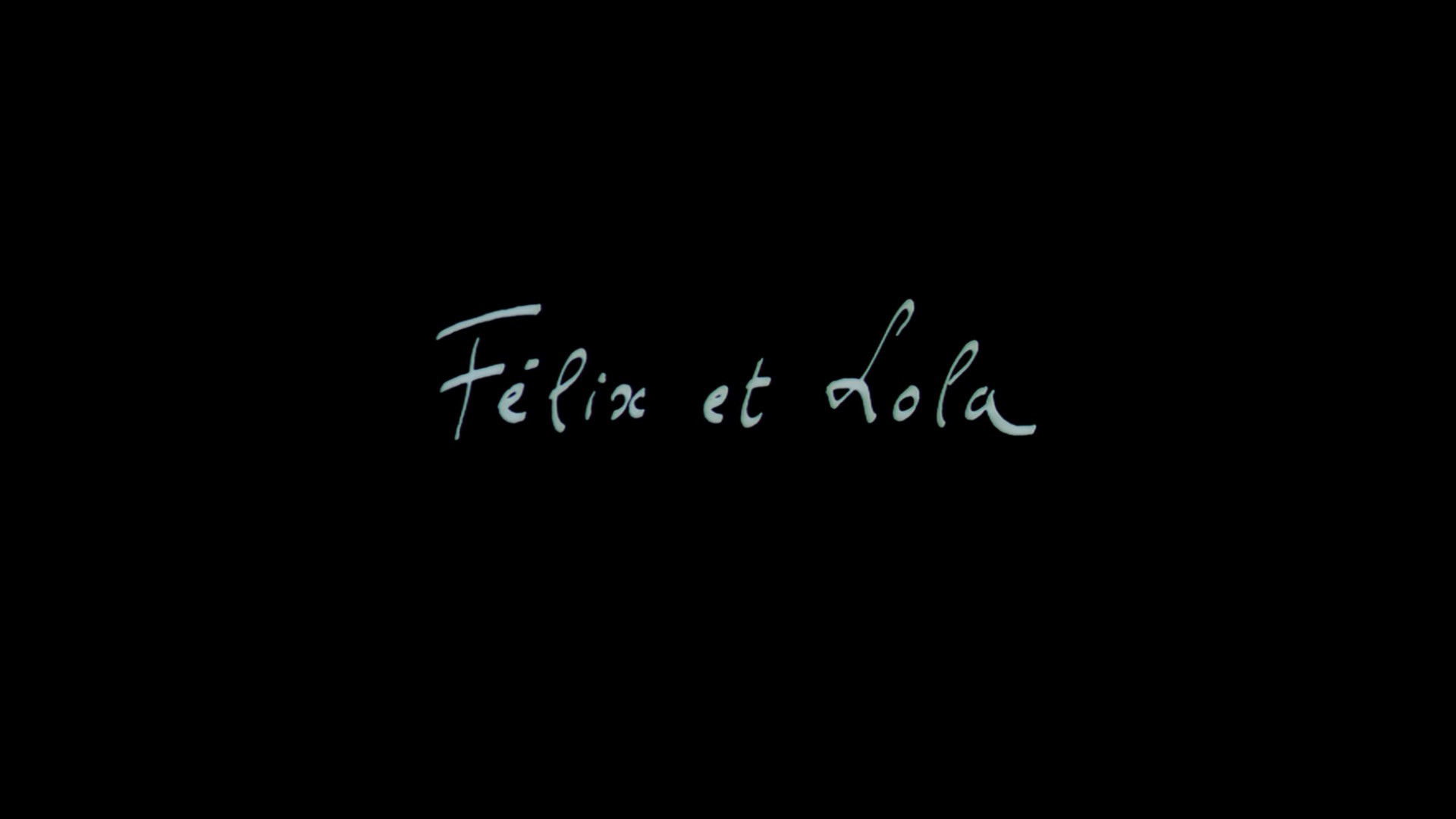Felix and Lola (2001), directed by Patrice Leconte, is a mesmerizing French film that delves into the depths of desire, obsession, and the intricacies of human relationships. This sensual and provocative exploration stands as a significant contribution to the rich tapestry of French cinema. In this review, we delve into the film’s captivating narrative, the director’s unique vision, and the cultural significance of Felix and Lola, all while adopting a Vice News-style approach to engage international cinema fans.
![Felix and Lola (2001) [Cohen Collection Blu-ray review] 2 Felix and Lola (2001) [Cohen Collection Blu-ray review] 1](https://andersonvision.com/wp-content/uploads/2023/06/felix-and-lola-blu-1.jpg)
The Enigmatic Narrative of Felix and Lola
Felix and Lola offers a tantalizing narrative that explores the unpredictable nature of desire and its consequences. The film follows the lives of Felix (Philippe Torreton) and Lola (Charlotte Gainsbourg), two individuals bound together by their shared passions and obsessions. Leconte’s masterful storytelling takes us on a rollercoaster ride through their tumultuous relationship, filled with moments of intimacy, betrayal, and self-discovery.
Leconte’s skill lies in his ability to peel back the layers of his characters, delving deep into their motivations and desires. The narrative unfolds with a sense of urgency, keeping viewers on the edge of their seats, never quite sure of what lies ahead. The film explores themes of longing, obsession, and the blurred lines between love and lust, challenging societal norms and inviting audiences to question their own desires and boundaries.
![Felix and Lola (2001) [Cohen Collection Blu-ray review] 4 Felix and Lola (2001) [Cohen Collection Blu-ray review] 3](https://andersonvision.com/wp-content/uploads/2023/06/felix-and-lola-blu-2.jpg)
Patrice Leconte’s Directorial Brilliance
Patrice Leconte‘s directorial prowess shines through in Felix and Lola, elevating the film to a new level of cinematic excellence. Known for his ability to capture the complexities of human relationships, Leconte brings a unique vision to the narrative, infusing it with sensuality, emotional depth, and a touch of intrigue.
Leconte’s directorial choices create an immersive experience for the audience. His attention to detail is evident in every frame, capturing the characters’ emotions through evocative close-ups and nuanced performances. Leconte’s direction is unafraid to delve into the darker aspects of desire, embracing the complexities and contradictions that exist within human relationships.
Furthermore, Leconte’s collaboration with cinematographer Jean-Marie Dreujou adds a visual allure to the film. The camera work is exquisite, with each shot carefully composed to heighten the emotional impact of the narrative. The use of lighting and shadow creates a sensual and intimate atmosphere, reflecting the characters’ internal struggles and intensifying the film’s thematic exploration.
![Felix and Lola (2001) [Cohen Collection Blu-ray review] 6 Felix and Lola (2001) [Cohen Collection Blu-ray review] 5](https://andersonvision.com/wp-content/uploads/2023/06/felix-and-lola-blu-3.jpg)
Felix and Lola’s Contribution to French Cinema
Felix and Lola makes a substantial contribution to French cinema by pushing the boundaries of narrative and exploring the intricacies of desire. French cinema has a long-standing tradition of examining the complexities of human relationships, and Leconte’s film follows in this tradition admirably.
The film challenges societal norms and invites viewers to confront their own desires and limits. It explores the blurred lines between love and obsession, raising thought-provoking questions about the nature of desire and the consequences of unchecked passions. Felix and Lola dares to delve into the dark recesses of human nature, shedding light on the vulnerabilities and complexities that lie beneath the surface.
Moreover, the film showcases the evolution of French cinema, blending elements of traditional storytelling with a contemporary sensibility. Leconte’s directorial choices and narrative structure reflect a modern approach, engaging with the complexities of desire and relationships in the 21st century.
![Felix and Lola (2001) [Cohen Collection Blu-ray review] 8 Felix and Lola (2001) [Cohen Collection Blu-ray review] 7](https://andersonvision.com/wp-content/uploads/2023/06/felix-and-lola-blu-4.jpg)
You all can become International Cinema Fans
For international cinema enthusiasts, Felix and Lola offers a compelling window into the distinct qualities of French filmmaking. French cinema has always been celebrated for its exploration of human desires and its ability to capture the complexities of intimate relationships. In this regard, Felix and Lola represents a captivating and thought-provoking addition to the pantheon of French films.
Patrice Leconte’s directorial vision brings a sensuous and enigmatic quality to the narrative, captivating audiences with its exploration of desire and obsession. The film’s provocative themes and nuanced performances transcend cultural boundaries, resonating with international viewers who seek narratives that delve into the depths of human emotions.
![Felix and Lola (2001) [Cohen Collection Blu-ray review] 10 Felix and Lola (2001) [Cohen Collection Blu-ray review] 9](https://andersonvision.com/wp-content/uploads/2023/06/felix-and-lola-blu-cohen-1.jpg)
Final words on Felix and Lola
Felix and Lola (2001), directed by Patrice Leconte, stands as a captivating and provocative contribution to French cinema. Leconte’s directorial brilliance, coupled with the enigmatic narrative, creates an immersive and thought-provoking experience. The film challenges societal norms, explores the complexities of desire, and invites audiences to confront their own boundaries. Through its captivating storytelling, Leconte’s film offers international cinema fans a tantalizing glimpse into the distinct qualities of French filmmaking. Felix and Lola is a testament to the enduring power of French cinema to captivate, provoke, and illuminate the depths of human relationships.
![Felix and Lola (2001) [Cohen Collection Blu-ray review] 12 Felix and Lola (2001) [Cohen Collection Blu-ray review] 11](https://andersonvision.com/wp-content/uploads/2023/06/felix-and-lola-blu-cohen-4.jpg)
Cohen bundles Felix and Lola together with Love Street on a double feature disc
Felix and Lola hits theaters in 2001. Much like Radio and Donnie Darko before it, the timing kinda killed its ability to branch out internationally. The Blu-ray makes the most of the limited special features to show it off. You get an audio commentary and trailers for the restoration.
The A/V Quality is the big selling point of Felix and Lola as it’s the best it looked in 20 years. However, 99% of the people watching the movie in America will be seeing it for the first time on Blu-ray. So, your mileage may vary. Still, stick around for the DTS-HD master audio track.

![Love Street (2002) [Cohen Collection Blu-ray review]](https://andersonvision.com/wp-content/uploads/2023/06/love-street-movie-title.jpg)
![The Good Boss (2021) [Cohen Collection Blu-ray Review]](https://andersonvision.com/wp-content/uploads/2023/06/the-good-boss-blu-1.jpg)